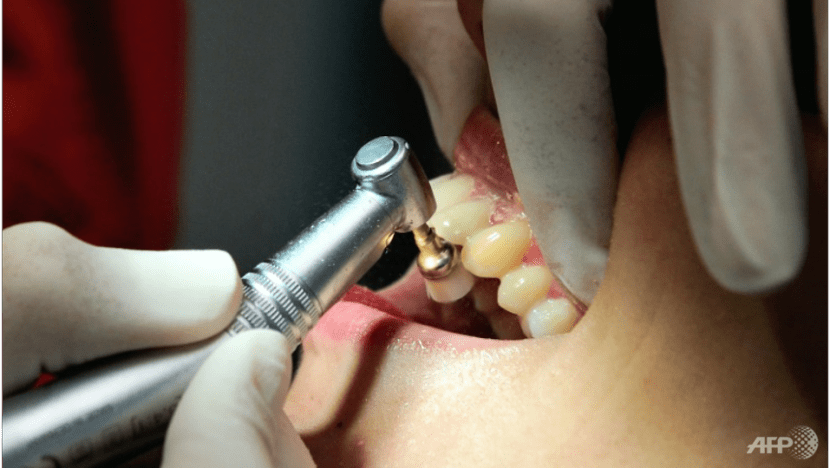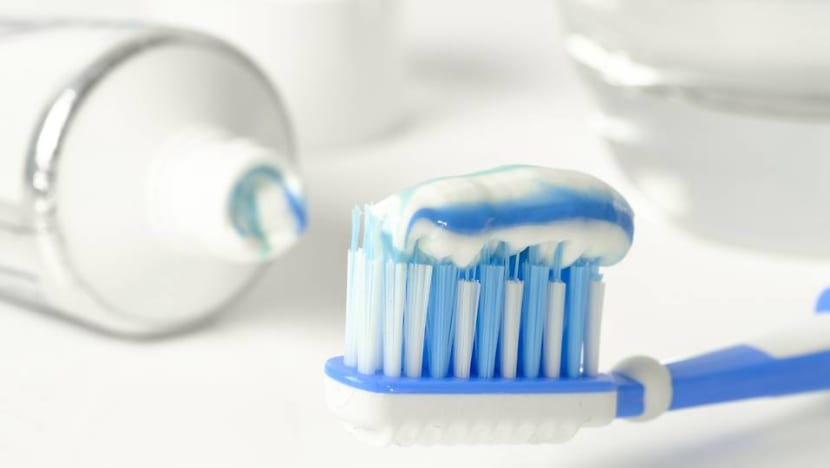Commentary: Not brushing your teeth may increase your risk of severe COVID-19
Bad oral hygiene has been associated with making many other diseases worse, and COVID-19 might be one of them, says two UK dental researchers.

PRESTON, United Kingdom: Not brushing your teeth will get you in trouble with the dentist – but since the arrival of the pandemic, it could lead to bigger problems too.
There’s growing evidence that poor oral health raises the risk posed by COVID-19. Research shows that people with poor oral health can end up with more severe symptoms if they catch the coronavirus.
COVID-19 patients who also have gum disease are 3.5 times as likely to be admitted to intensive care compared to those without. They’re also 4.5 times as likely to need to be put on a ventilator and nine times as likely to die from COVID-19.
This may seem shocking, but the fact that there’s a link between oral health and COVID-19 is less surprising when considering the link between oral hygiene and other diseases.
Bad oral hygiene has been associated with making many other diseases worse.
Principally this happens when bad hygiene is sustained for long periods, leading to dysbiosis – where the bacteria in the mouth change from a peaceful state into an aggressive one.
Once the mouth’s bacteria become aggravated, they can cause gum disease, chewing away at the tissues of the mouth and entering the blood stream.
And once there, the bacteria can then flow around the body and settle in various organs, raising levels of inflammation and over time contributing to various specific and chronic conditions.
Indeed, if this happens, there’s barely a part of the body that can’t potentially be affected. Poor oral health can have an impact on the heart, raise blood pressure and make diabetes worse by raising blood sugar levels.
It’s been linked to premature births, arthritis, kidney diseases, respiratory disease and even some neurodegenerative diseases, including Alzheimer’s.

SO IS THE SAME THING HAPPENING WITH COVID-19?
Possibly. Compared to those with mild or moderate symptoms, people with severe COVID-19 have elevated levels of a specific inflammatory marker called CRP.
Some people with severe COVID-19 also suffer what’s called a “cytokine storm”, where the immune system goes into overdrive fighting off the virus and harms the body’s own tissues at the same time.
Research shows that people with poor oral health also sometimes have elevated levels of CRP and cytokines – which suggests that gum disease can trigger the same sort of zealous immune response as COVID-19, though to a lesser degree.
So if the two diseases are encountered at the same time, with the coronavirus and aggressive mouth bacteria both circling in the blood, then it’s possible that they together might tip the immune response into harming the body’s own tissues, leading to worse outcomes for people.
BACTERIAL SUPERINFECTIONS
However, we currently understand little about how exactly oral hygiene and COVID-19 interact, and it could be that they are combining in other ways to make the disease worse too.
For instance, a big problem with COVID-19 and other respiratory viral illnesses are bacterial superinfections. These are where areas directly infected by the virus – such as the lungs and airways – are simultaneously infected with bacteria.
Bacterial superinfections are common in people who have COVID-19, and they’re significantly more common in people with severe disease.
It’s not known precisely what impact they have, but it’s reasonable to assume that these concurrent infections raise the risk of severe disease and death.
Throughout the pandemic, studies have found that a large proportion of people dying from COVID-19 – in some cases, 50 per cent – were also infected with bacteria at the same time.
If someone’s oral hygiene is poor, this could raise the risk of a superinfection. Poor oral hygiene means more aggressive bacteria in the mouth, which could then easily be breathed into the airway and lungs to launch a superinfection.
On top of this, poor oral health may also help the coronavirus infect the body.
Enzymes from the bacteria that cause gum disease can alter the surface of the mouth and respiratory tract, making it easier for other microbes – such as the coronavirus – to adhere to these surfaces and grow there.
As time passes it will become clearer exactly how oral health affects the progress of COVID-19. It may be that for some people, all of these mechanisms are at play at the same time.
But for the meantime, there is enough evidence to consider poor oral hygiene a risk factor for complications in those who have COVID-19 – and especially in those who are already suffering with conditions such as diabetes, high blood pressure or cardiovascular disease, as these can be aggravated by poor oral health and are themselves risk factors for COVID-19.
It’s therefore more important than ever to maintain proper oral hygiene. This means brushing twice a day for at least two minutes with a fluoride-containing toothpaste and visiting the dentist on a regular basis.
Hopefully you won’t catch the coronavirus, but if you do, having good oral health and caring for your mouth could significantly reduce your risk of developing severe symptoms.
Sim K. Singhrao is a senior research fellow and Alice Harding is a specialist care dentist at the University of Central Lancashire. This commentary first appeared on The Conversation.















